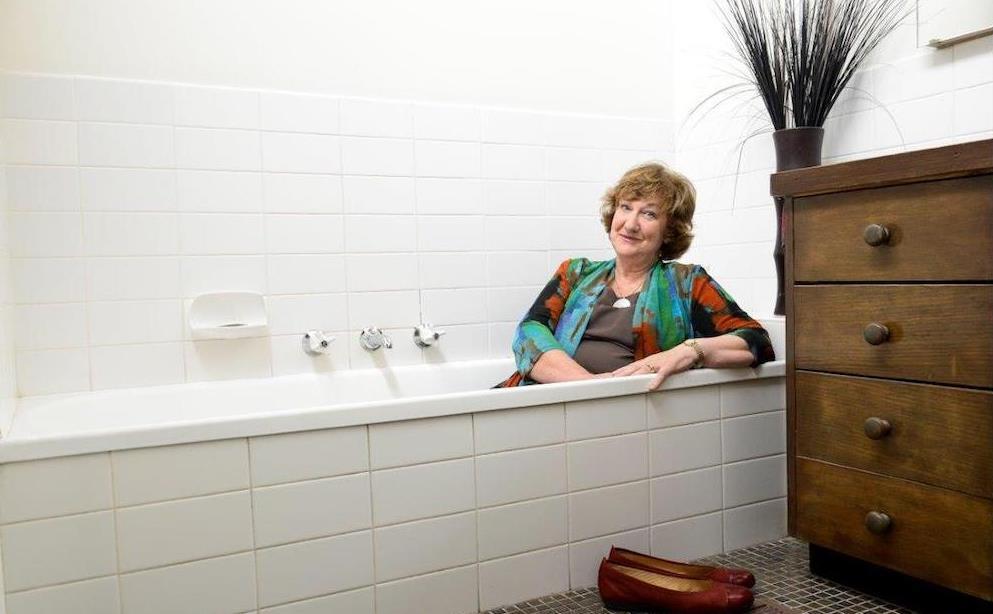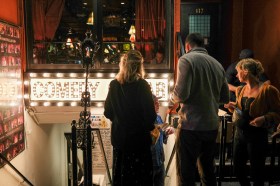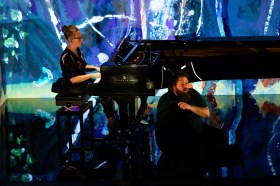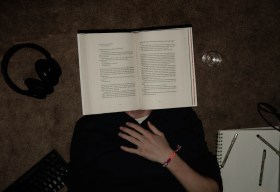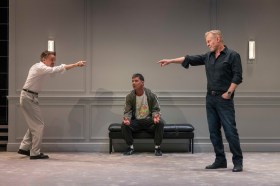Hazel Edwards, the renowned author of the bestselling children’s book There’s a Hippopotamus on our Roof Eating Cake has never been one to shy away from a novel idea. Although she admits to being typecast as The Hippo Lady after writing the popular children’s book, this never stopped her from exploring other interesting ideas which were often progressive and groundbreaking, especially with her recent work that explores sexuality and gender.
‘I’ve always been interested in the concept: Coping successfully with being different,’ she tells ArtsHub.
It’s not unusual for some of her projects to take years to get off the ground, but she’s stuck with them the entire way through, even if it’s taken years.
Keep persisting
Hijabi Girl, a book Edwards co-wrote with Ozge Alkan, was finally published in 2016 after 41 rejections from traditional publishers. Alkan, a highly qualified librarian at an Islamic school, initially approached Edwards to write the book about a feisty Muslim girl who wears a hijab so that one of Alkan’s students could wear traditional dress for Book Week instead of Little Red Riding Hood, who everyone was over at that point.
‘When Hijabi Girl was being pitched it was difficult because people were equating the hijab with Islam and terrorism,’ Edwards said.
This was also around the same time the Lindt Café siege occurred in Sydney, however the book was successfully published and has now been turned into a touring puppet show.
Similarly, when Edwards co-wrote f2m: the boy within, the first YA novel with a trans character who had transitioned, there was criticism, especially as Edwards herself was not transgender, although she did co-write the book with a transgender friend.
She says getting these projects off the ground is linked to sheer determination. ‘I am persistent and I would say that is a quality that all writers need,’ she admits.
Use rejection to your advantage
Journalist Lisa McLean co-hosts The Prince and the Pervert – a podcast about pedophile Jeffrey Epstein, his conspirers and enablers. When the podcast launched there weren’t many other Australian podcasts tackling this theme, the hosts soon realising they were onto something. Despite initial criticism of the podcast, the producers’ motivation to keep creating it was fuelled by their desire to bring justice to Epstein’s victims by telling their stories.
Although The Prince and the Pervert has now received over 500,000 listens, the hosts initially endured criticism and were told by one individual that no-one would be interested in what they had to say. But they’ve now learnt to use criticism as a way to continue improving the show.
‘We use our extremely critical reviews as content. We don’t shy away from it,’ McLean said. ’But we’ve improved our audio and paid someone to critique our podcast.’A review for The Prince and the Pervert which the producers use to improve their content.
Like McLean, acclaimed painter and sculptor Lindy Lee, whose survey exhibition Moon in a Dew Drop is currently showing at MCA, and who has had an illustrious career spanning 40 years, agrees that negative reviews can be helpful in evaluating your work, although she suggests being selective with what you do take on board.
‘When you get a bad review or people form all sorts of ideas and opinions about you, it’s really painful,’ Lee said. ‘In that instance you have to learn resilience and maturity to look at whatever the criticism is and ask: “How much of it in my heart is true and how much can I take on board to better understand my work?
Read: How to leverage rejection to fuel your arts career
This enlightened way of thinking is prevalent in both Lee’s artwork – her practice explores her Chinese ancestry through Taoism and Ch’an (Zen Buddhism) and the way she seems to approach life generally.
Through talking with her, it becomes apparent that sometimes ‘success’ in art or creativity in general is simply making a decision to embrace authenticity as opposed to a merely financial outcome.
At times Lee says she’s taken a ‘left turn’ with her artwork in accordance with what her soul needed her to do. When such a situation occurs she will ruminate. ‘I have to sit myself down and say: “OK Lindy, it feels that you need to do this and if you do this you have to be okay with the outcome. And that outcome may be pure rejection but you have to do it.”
‘And I accept it because it’s actually not worth my while to keep repeating what will become a formula,’ she said.
‘You have to be true to yourself, that’s all. Life is not worth living unless you’re willing to be true to yourself.’ – Lindy Lee
She adds: ‘You have to be true to yourself, that’s all. Life is not worth living unless you’re willing to be true to yourself.’
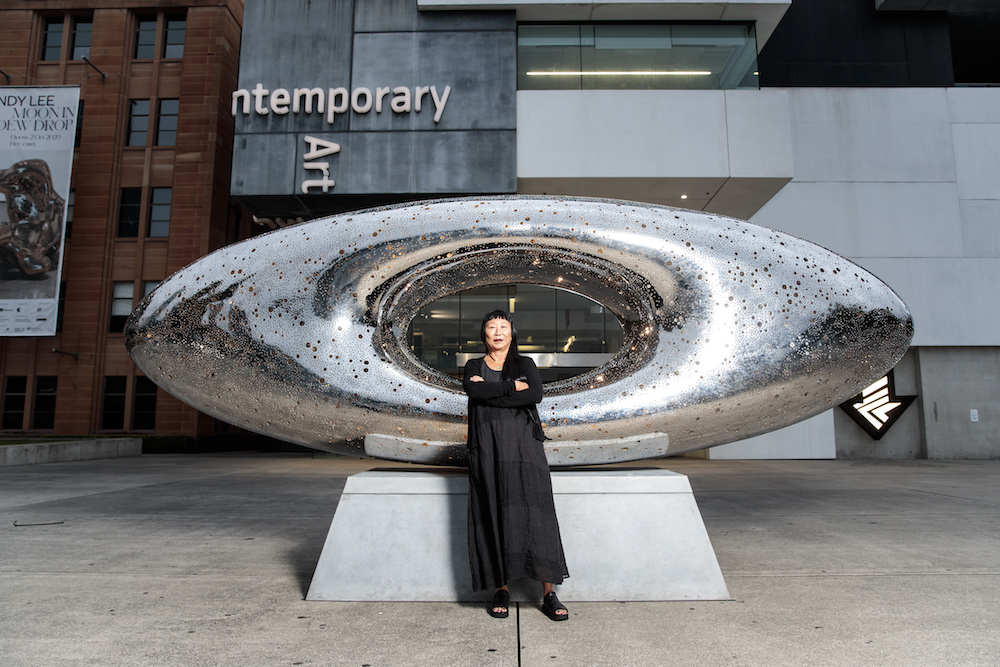
Collaborate and upskill
While writing Hijabi Girl, f2m:the boy within and Celebrant Sleuth (a mystery series about an asexual romantic) Edwards has embraced working with collaborators. She suggests it’s not only important for gaining emotional support while working on a project which is different but also a way to learn valuable skills.
‘Work with a co-writer who has complementary but different skills, and with whom you can have an equal share of things,’ she said. ‘I continue to learn from younger people who have better multimedia skills than me. I am a formatting tragic,’ she joked.
Upskilling is another way for creatives to have success and broaden the projects they are working on, particularly if you’re waiting for your unconventional or novel idea to get picked up or if that idea hasn’t turned out. Success can be achieved by learning new skills and working on a variety of projects.
‘The other way of coping with rejection is to upskill,’ Edwards said. And that’s what a lot of sensible people, who are creatives, have been doing during the pandemic.’
For Lee, taking the time to become more adept at grant writing has been valuable in terms of upskilling, particularly when applying for grants.
‘With every rejection in terms of a funding body, I’ve had to learn to upskill my writing,’ Lee said. Even if you have the most illustrious career, the skill of being able to describe your work and your proposition is unbelievably important.’
And finally Lee suggested the following advice for those facing rejection and criticism in regards to their project or idea.
‘None of this is personal. Never take it personally because if you do, you’re actually acquiring approval and approval is lovely but it’s not the basis of one’s practice.’

